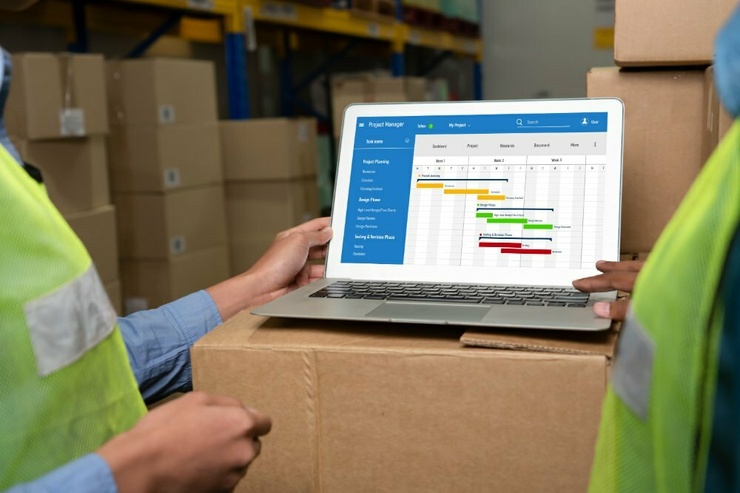- Ship
The Fractured Landscape of Trucking and CEP: Embracing Multicarrier Parcel Management
Market Overview
The future of trucking and courier, express, and parcel (CEP) services is poised to become more fractured than ever before. Traditional giants that once dominated the industry are facing competition from a rising tide of smaller carriers and delivery service providers, many of which entered the market during the logistics and e-commerce boom of 2021 and 2022. This shift is fundamentally altering the landscape of transportation and delivery, with significant implications for retail shippers.

The era of consolidation, where a few major carriers like FedEx and UPS held sway, is giving way to a more fractured market. Smaller carriers, often characterized by agility and innovation, are gaining ground at an impressive pace. This allows them to adapt quickly to changing market demands, providing retail shippers with a viable alternative to the established incumbents.
This transformation is not limited to trucking alone; it extends to the Parcel industry as well. Smaller delivery service providers are carving out their niche, challenging the dominance of the industry giants. This diversification is a boon for retail shippers, as it offers them greater flexibility and reduces their dependence on a limited number of carriers.
Current Challenges
However, with this newfound diversity in the market comes a unique set of challenges for retail shippers. While the prospect of using multiple carriers seems promising, the practicality of finding and connecting with these smaller carriers can be daunting. The logistics landscape is becoming increasingly complex, and retailers need a streamlined solution to manage their growing network of carriers efficiently.
One major challenge is the lack of visibility into the capabilities and availability of smaller carriers. Retail shippers often struggle to identify carriers that align with their needs, and this information gap can lead to inefficiencies and higher costs. Coordinating with multiple carriers also complicates rate negotiations, order processing, and invoice reconciliation.
Technology Solutions: Multicarrier Parcel Management
Enter multicarrier parcel management systems, a revolutionary solution that empowers retail shippers to optimize their parcel shipments across multiple carriers seamlessly. This technology not only simplifies the complex task of managing various carriers but also offers a range of benefits that can transform the retail supply chain.
Diversified Delivery Fleets: Multicarrier parcel management enables retailers to diversify their delivery fleets effortlessly. By tapping into a broader pool of carriers, they can ensure that their shipments are in the hands of the most suitable service providers, enhancing customer satisfaction.
Augmented Capacity: Retailers can leverage the augmented capacity of smaller carriers during peak seasons or surges in demand. This flexibility allows them to scale their operations without the need for long-term contracts with multiple carriers.
Automated Rate Shopping: The technology automates rate negotiations, ensuring that retail shippers always secure the best rates for their shipments. This not only saves costs but also streamlines the shipping process.
Faster Order Processing: Multicarrier parcel management systems streamline order processing times by automating carrier selection and label generation. This efficiency leads to quicker order fulfillment and improved customer experiences.
Intelligent Invoice Reconciliation: With the ability to consolidate and manage invoices from multiple carriers, retail shippers can significantly reduce errors and discrepancies in billing, leading to cost savings and accurate financial reporting.
Business Impact
The adoption of multicarrier parcel management systems can yield substantial benefits for retail shippers.
Reduction in Average Time to Onboard Carriers: The ability to onboard carriers swiftly and seamlessly means that retail shippers can respond quickly to market changes, ensuring that they always have access to the best delivery options.
Reduction in Last-Mile Delivery Costs: Efficiency gains from multicarrier parcel management translate into significant cost savings in the crucial last-mile delivery, where costs are often the highest.
Reduction in Cart Abandonment Rates: Faster order processing, more flexible delivery options, and improved customer experiences all contribute to reduced cart abandonment rates, ultimately boosting sales and revenue.
The future of trucking and parcel services is increasingly decentralized, with small carriers and delivery providers gaining market share at the expense of established giants. While this shift offers retail shippers greater flexibility, it also presents challenges in managing a diverse network of carriers. Multicarrier parcel management systems emerge as the solution to these challenges, providing efficiency, cost savings, and improved customer experiences. As the logistics landscape continues to evolve, retail shippers who embrace this technology are poised to thrive in this new era of transportation and delivery.

Komal Puri is a seasoned professional in the logistics and supply chain industry. As the AVP of Marketing and a subject matter expert at FarEye, she has been instrumental in shaping the industry narrative for the past decade. Her expertise and insights have earned her numerous awards and recognition. Komal’s writings reflect her deep understanding of the industry, offering valuable insights and thought leadership.
Let's Talk to Our Experts and Optimize Your Deliveries Today!
An expert from our team will reach out within 24 hours



